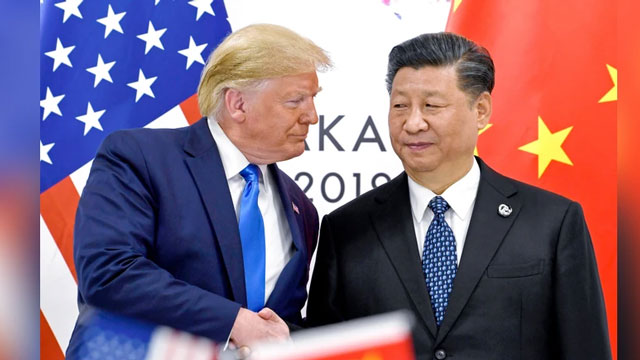Daijiworld Media Network – Beijing
Beijing, Nov 1: Chinese President Xi Jinping on Friday cautioned global leaders against joining the United States in efforts to reduce reliance on Chinese supply chains, warning that such moves could lead the world back to “the law of the jungle.”
Speaking at the closing session of the Asia-Pacific Economic Cooperation (APEC) Summit, Xi called on member nations to resist protectionism and unilateral bullying. “APEC economies should oppose protectionism, resist unilateral bullying, and prevent the world from returning to the law of the jungle,” Xi said.

He emphasized the need for stronger and more resilient industrial supply chains, indirectly criticizing Western efforts to diversify manufacturing away from China. “China will join hands, not let go, and focus on extending chains, not breaking them,” he remarked, underscoring Beijing’s commitment to global trade integration.
Xi’s comments came as China remained the only major superpower present at the summit after US President Donald Trump left South Korea a day earlier.
Despite Xi’s call for cooperation, Beijing’s actions have drawn global concern. Earlier this month, China proposed new export controls on rare earth metals, vital for semiconductors and batteries, which could give it considerable leverage over dependent nations. China currently produces nearly 90 percent of the world’s rare earth elements.
Beijing defended the move as a counter to US trade restrictions, but several countries viewed it as a potential pressure tactic.
Meanwhile, Xi’s remarks followed his meeting with Trump, which hinted at a softening in strained US-China relations. The United States agreed to reduce tariffs on Chinese goods from 57 percent to 47 percent, while Xi pledged to limit the export of chemicals used in making fentanyl, a synthetic opioid linked to a severe health crisis in the US.
The two leaders held candid discussions, with Trump describing Xi as “a great leader but a tough negotiator.” The talks suggested a slight improvement in ties after months of friction over trade, technology, and rare earth exports.
The recent developments indicate that while both nations are testing diplomatic ground, competition over economic influence and supply chain dominance continues to shape global trade dynamics.